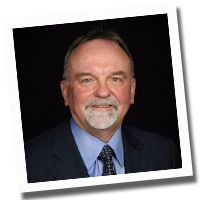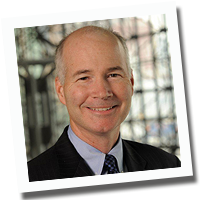Ryan Strowger, CEM
Senior Vice President, Exhibitions, Conferences & Sales
International Association of Amusement Parks & Attractions (IAAPA)
Get Involved
When I first got started in this industry, I had some mentors who strongly encouraged me to get involved with IAEE. That has been tremendously advantageous to me over the years, so I would suggest the same – network with your peers, learn best practices and volunteer. That participation does not necessarily need to be at Expo! Expo! or other national events. Chapter involvement can be just as rewarding.
Also, our industry usually lends itself to a lot of travel. I always encourage people starting in their careers to pick an airline and stick with it. Loyalty to a brand has its rewards!

Mindy Abel, CMP, CTA
Senior Vice President, Strategic Alliance and Partnership
Visit Anaheim
What advice would you give your 25 year-old self?
At 25, I was enthusiastic and ready to dig in and work hard. What’s changed is the patience to know that hard work, focus and dedication will pay off. Enjoy what you do, and be proud of your work…
Here’s my “acronym” for life: VALUE
V – Know what value you bring to the organization, understand how you can grow and learn through the experiences you are responsible for and look for ways to translate them into advancing opportunities.
A – Apply your values in all you do, treat others with respect, work hard, and turn challenges/frustrations into solutions and opportunities.
L – Learn from experiences of others, let their path and advice help you determine yours.
U – Understand the goals of your organization and how you and the team you are on contribute to them with all that you do. Use this as your point of direction as you measure your accomplishments.
E – Perseverance- in life remain steadfast, focus on friendships, relationship building and surrounding yourself with people who make your life joyous and rewarding.

Cathy Breden, CMP, CAE, CEM
EVP & Chief Operating Officer, IAEE
CEO, CEIR
What advice would you give your 25 year-old self?
What I would tell my 25-Year-Old Self is difficult to say. It was a long time ago and a different time and I was a “late bloomer.” I always thought I would go into the medical field, but life got in the way and it wasn’t until I was 22 that I started going to a local community college at night after a full day of work to study secretarial science. After I completed that two-year course of study, I realized I did not want to be a secretary! I quit my job, packed up my stuff in a U-Haul and, with two cats, headed to Tallahassee to attend Florida State University. Those were not fun years; I worked full-time and went to school full-time, and finally graduated when I was 28 with a Business Management degree with an emphasis in association management. I never looked back. Those early years framed who I am today. Here is what I know for sure:
• Sometimes you have to leave a job and people who have become your friends to move forward.
• Be patient and work hard. Success will come. There will be a lot of people my age retiring over the next 5-10 years. Your generation are the leaders of tomorrow!
• Don’t forget those people who have helped you along the way. While I was working full-time for county government, my boss allowed me to come in late so I could take classes in the morning. This was not something allowed when I was in my 20s. Tell them you appreciate them and why! It is really nice to hear those things.
• Also tell those people who motivated you to think beyond what you thought of yourself.
• Be confident in yourself. You are smarter than you think!
• And, perhaps most importantly, always maintain your integrity. Integrity is your capital. Once you lose it, it is very hard to get back. If you have a doubt about whether a situation is unethical, talk about it with someone you respect for their integrity.
• As Mike Rowe said, “I’m looking forward to the future, and feeling grateful for the past.” I am so very grateful to all those who have helped me, encouraged me and mentored me through the years.
Life will most likely not go as you had dreamed or would have liked. Take what you learn and make yourself a better person, a better professional and live your life surrounded by people you respect, admire and love!

Andy Darmohraj, CAE
Executive Vice President & COO
American Pet Products Association
Holistic Knowledge
Try to learn about every aspect of the industry. There are big differences between sales, operations, marketing and registration. Offer to help other departments when you can. You will learn the challenges they face and see how the processes work outside your own group. Having a holistic knowledge of how to produce a trade show is a huge asset.
Dana Wuesthoff
Vice President – Exhibitions and Event Services
CONEXPO-CON/AGG Show Director
Network Responsibly
Network responsibly. It’s not about the quantity of people you meet but rather the quality of exchanges you have. Also, the industry is smaller than you think so be cognizant of what (and who) you’re talking about at networking events. You never know who could be listening!
Cookie Walner, CMP, CMM, CAE, CEM
Director of Events
American Hardware Manufacturers Association
Mentors
The best mentor relationships evolve organically. You already have the connections to people who inspire you, people you respect. Watch for them or seek them out. Some of my mentors didn’t even know they served in that role for me. You can be a mentor. You are a valuable resource for your colleagues and peers. And seasoned professionals can learn a great deal from you. Be open to those relationships.

Skip Cox
CEO, Exhibit Surveys, Inc.
IAEE 2014 Chairperson of the Board
Develop and Follow Principles to Guide Your Career
Early in my career I was very fortunate to have a mentor – someone I respected, looked up to and from whom I learned some of the basic tenets that have guided my entire career. These basic principles still serve me well today. Acquiring specific skill sets and training is important but you also need a fundamental set of principles to guide your professional decisions and actions.
I was fortunate to have a mentor, and not everyone will find that one person they can identify as their mentor. But as I look back I realize that the principles that guide me have also been shaped by persons other than my mentor including clients, suppliers and other industry associates. I can’t speak for other industries since I am one of those who have spent my whole career in the exhibition and event industry, but I find people in our industry very willing to share so don’t be bashful about asking for advice and guidance from people you admire and respect.
Many of the principles I have adopted are typical of what you would expect (e.g., the customer comes first, deliver nothing but your best quality, integrity is everything, etc.). But if there were just two I could focus on that have benefited me most over the long run they would be:
- Stay on the learning curve.
My mentor had a saying that you “always have to be on the learning curve” meaning that life and work require life-long learning if you are to remain relevant, productive and successful. He worked until he was 75 and professed and practiced this until he retired. I think this principle is even more critical today with the rapid change we encounter in everything from technology to marketing. In my opinion this is one of the more important principles in order to avoid plateauing in your career. Continuous learning gives you the confidence and knowledge to challenge yourself, challenge conventional thinking and taking the calculated risks that are often necessary to get and stay ahead.
- Get involved and give back to the industry.
Contributing your time, talents and money to industry initiatives is more than just the right thing to do. Giving back reaps many rewards such as meeting new people, learning from others, developing leadership skills, generating new business opportunities, keeping current, developing life-long friends, generating new ideas, maintaining a competitive advantage, etc.
IAEE 2014 Chairperson of the BoardMy mentor was very generous with his time and encouraged and made a point of supporting the industry in any way possible. We continue to follow his example. He looked at it as an investment in our company and in our employees’ professional development. Hard to quantify sometimes, but the value of participating and giving back was never questioned.
In case you are wondering, my mentor was Dick Swandby, founder of our company and recognized as one of the true icons in our industry. He was the winner of IAEE’s Pinnacle Award (known as the William Hunt Eisenman Award in his day), elected to the Convention Industry Council’s Hall of Leaders and winner of countless other industry association awards and recognition. In 2014 at 85 years of age (10 years after he retired), he was still remembered and recognized as EXHIBITOR Magazine’s inaugural Legends Hall-of-Fame Honoree.
Not everyone will have the good fortune of finding a mentor like Dick Swandby, but if you do nothing else but follow his example to stay on the learning curve and give back it will go a long way to enhancing your professional development and career.

Jim Kelley
Vice President, Industry Relations
Production Resource Group, LLC
Your Professional Development, Growth and Success are Solely Your Responsibility…NO ONE ELSE’S!!!
Seems a little harsh doesn’t it? Don’t let the harshness of the title diminish the fact that we are in a great industry filled with people who want to help you grow, develop and be successful both personally and professionally.
When you were a child, your parents most likely selected where you would go to school for the first twelve years of your life. While many of us may have been fortunate to have great teachers who impacted our lives, the truth is they were paid and accepted positions that required that they be focused on our development, growth and success, and for all practical purposes, held our hands through most of this process.
When you attended college, the choices and ownership began to swing away from your professors and parents to you as it related to your development, growth and success.
Now you are a professional who is responsible for your own development, growth and success. Remember, responsibility is different than supporting, assisting and mentoring. A good employer is going to do the latter, but only if you take the first step and show them your desire to take ownership and accountability for your own actions.
Accountability is defined as the obligation or willingness to accept responsibility or to account for one’s actions.
For the purposes of this article, I am going to provide you with three areas of accountability to think about.
- YOUR GOALS
- Fitness and Health
- Family
- Financial
- Spiritual
- Community
- Career
- Continued Education/Professional Development
There is a reason I mentioned YOUR GOALS first. For you to be successful, you must first be happy and know what you want for yourself. As much as I enjoy working as part of the PRG team and believe in what we do, the reality is that they allow me to focus on my goals, support me in achieving them, and because of that, I do my best everyday to help my employer achieve the company’s goals and objectives; a classic WIN-WIN.
- YOUR CHOICES
- How you communicate with others
- Where you choose to spend your time
- Your manners and behavior towards others
- How you respond to adversity
- Your attitude and thoughts
Every choice you make defines you, shapes you and lays the foundation for your future. Let me be very clear, the right choice is not always easy, is not always clear, but it is always worth making. One last thought on choices: whether it’s not making a choice or avoiding a response, your lack of action is a decision; it is a choice. When you decide not to choose, you give away your power and your ability to make an impact on your future.
- YOUR RESPONSIBILTIES
- Doing what you agreed to do
- Returning calls, texts, and emails in a timely manner (returning a phone call with a text does not count)
- Being on time for appointments, calls and projects.
- Being a good steward of organizational resources (money, supplies, time)
- Staying focused on your job and saying no more often
Responsibility is not something you decide to do once in a while, it is a way of thinking, being and living your life professionally and personally. Responsibility is a two-way street in that you need to accept responsibility for your actions and outcomes (team or individual), whether positive or negative.
Now back to your development, growth and success. If you are clear with your goals, you make choices based on the information available to the best of your ability. Take 100 percent of the responsibility for your actions. Surround yourself with people inside your organization, professional community and personal life that will mentor, push, guide and carry you when needed.

Manolita Moore, MBA
Owner/Managing Director
Las Vegas Show Management, LLC
Like many others in the convention and trade show industry, I stumbled into this business purely by chance. Therefore, I didn’t know what I was getting into and certainly was not fully prepared for the many challenges, as well many opportunities that came my way during what is now my 17th-year as a career trade show professional.
As a young professional today, you are fortunate to have an organization such as IAEE that provides young professional who are just entering the profession with quality resources and support. IAEE has asked me to provide you with some of my recommendations and insights, garnered from my particular experience, to serve as some helpful tips to guide you in your endeavors to succeed in a rewarding and exciting career/industry.
- Write Your Goals
It’s not a top secret, but writing your goals will set the tone on your success in the future. There is something to be said for taking the effort to write down, and therefore to making a psychological commitment to the goal(s) you want to accomplish. However, depending on where you are in your career, you need to be realistic and flexible on your goals so you are not disappointed. List your goals short-term goals (1-2 years) and long-term goals (3-5 years) and put deadlines. Adjust as needed and look at it frequently to make sure that you are staying on track. I personally carry my list in my wallet with me, each and every day, even to this day.
- Get Your Education
If you have not yet started your college education, I strongly advise that you start now. If you have started, but not yet completed your degree, even if it is not currently in a trade show related degree the simple fact of having completed your degree will speak volumes to fellow college graduates about your commitment to complete what you’ve started. A college education in any field will serve you well along the way. I completed both my undergraduate and MBA degrees while working and having two kids, so I know it can be done if you are focused and serious about your goals.
- Find a Mentor
When I was younger I thought I could do it all and really didn’t need any help. However, in hindsight, I wish that I had a mentor early on so I could have learned so much more, so much sooner, with so much less stress and anxiety than someone does by “doing it alone” and not having a mentor. Having a mentor provides you with access to someone with experienced insights into the industry, who knows more about what the latest advances and trends are, knows how to integrate newer technologies, even faster and much more. Perhaps my best advice in this area would be to identify someone you admire and to try and make a connection with that person – whether it is your boss, respected colleagues, or someone in your personal network that you can trust and want to confide in. In most cases, there are wonderful people who are willing to give back and would be glad to share their experience.
- Work Hard
I’ve always said that you can’t fake it in this industry. If you don’t work hard, it will show, and you won’t realize your goals or perhaps even wash out of this career field completely. This industry demands significant time commitments and work periods involving many long hours and typically, in many cases, extensive amounts of travel. However, for many people in this field, this is considered a significant job perk. Be prepared to give this career your best and you will reap the rewards later.
- Manage Your Time Well
As you advance in your career, you will find that efficient time management is your key to success and inefficient, time-wasting, efforts are your greatest foe. Without proper time management, you will find yourself doing a lot of work, traveling from place to place, and yet feeling like you did not accomplish anything. Therefore, be strategic and wise with your time. Don’t attend every party invitation you receive or volunteer to travel to everywhere that extends an offer, especially without evaluating if those events are truly of value to you or your career. Delegation of these events, if you are in a position to do so, may be more efficient and practical if your career and business goals are better served elsewhere. I hope you will also find time to maintain a balanced and healthy lifestyle. I didn’t do it early in my career, but I am glad I am doing it now. It makes a huge difference on how you feel about yourself and how you can find serenity in the midst of a really busy lifestyle.
- Learn a Variety of Tasks
While you are still building your career, especially, don’t be afraid to try out and/or learn new tasks. Be willing to take on additional duties and become the best you can be at every single one of them. Your boss will notice. Experience and knowledge commonly come as a package deal and being known as the one who has both is one sure way to rapidly advance your career.
- Never Stop Learning
I can’t emphasize this enough. If you want to be successful, you must continue learning and keep your skills current. Attending conferences, getting your CEM certification, or other industry-related certifications will help keep your knowledge and understanding of the industry current. Subscribe to trade industry magazines, participate in local chapters, and sign up for industry newsletters and information resources.
- Keep Your Reputation Intact
While you are working hard, studying, staying up on trends and trying to innovate where you can… don’t forget to make sure that you keep your reputation honorable. This is a very close-knit industry and the further you advance in this, or any profession, the smaller the network of key players becomes. Remember, eventually everyone will know you, or know of you, and you will be labeled according to the reputation you have built. You will want a positive feedback when someone else asks ‘who is this….’as it will determine whether you get the job or not.
- Volunteer
Try to find time to volunteer. But, don’t volunteer unless you have time, you believe in the cause, and you intend to fully participate. Otherwise, this will ruin your reputation as you will get labeled as a “no show” and no one will likely invite you again. This counts towards reputation, time management and such but anything done poorly affects your personal and professional image.
- Build Your Network
You may not understand it now, but having a network of friends in the industry will be priceless later in life. So, it’s certainly not too early to start now. Volunteering as mentioned above is one way to build your network and gain a chance to interact with people you might not otherwise have a chance to meet. Make sure you make an impression with key players and influential people in the industry, again, the reputation for dedicated hard work matters. Trust me – they will remember you and if there’s a job or business opportunity they have in mind, you’ll at least be in consideration for it.
The convention and trade show industry is a very dynamic and exciting career path. It is not without challenges, but if you follow these tips and are disciplined enough to take advantage of the resources available to you and develop a good network of friends your chances for success will be much higher. The rest is up to you! Good luck and may you have a successful career ahead.

Mike Ruberry
Vice President, Industry Relations
Metropolitan Exposition Services, Inc.
miker@metro-expo.com
201.362.0836
Board Member
New York Area Chapter of IAEE
I have been walking on show floors for a little more than thirty three years. A bit more than one-half of this time has been spent on the general service contractor side of the business. The rest of this time has been spent on the show organizer side of the business. I’ve spent equal parts of my career based in two great event marketplaces: New York and Chicago. I came into this industry with absolutely no idea of what I was getting myself in to. It all started because a dear aunt of mine and my uncle (at the time, the assistant general manager at McCormick Place) thought I could make a career in “show business.” I was skeptical to say the least. After all, I couldn’t sing or dance and I didn’t have a stand-up comedy routine. Little did I know that the “show business” that they had in mind would open up for me a somewhat secret and magical world of meetings and expositions. I soon learned that almost everyone who held a job, no matter what the profession, belonged to a group that would meet on occasion to enjoy social interaction with their peers, improve themselves through education and trumpet the importance of their particular field of endeavor. They came from all walks of life…You could be a dentist, plumber, real estate agent, funeral director and so on. The meeting and exposition possibilities were, and continue to be, seemingly endless.
At an entry level position for a general service contractor in Chicago I soon found myself assigned to events in the machine tool, packaging, engineering, office products, gift, sporting goods and various food and beverage industries (to name more than a few). It was a magical world indeed filled with movers and shakers/celebrities (I shook hands with the President of the United States)! There had to be magic involved to account for the “towns and cities” with carpeted “streets” that arose over the course of days, existed for about the same amount of time and then, in a relative “blink of an eye” disappeared to make way for the next event. It’s been “Brigadoon” meets “Groundhog Day” day in and day out in convention centers and hotel properties throughout the country and I’ve loved every minute of it. The time has flown by and my having been on “both sides of the fence” for about the same amount of time has given me an understanding of the respective needs of the event organizers and the service providers. Of course, for an event to reach the highest level of success, all of us need to work together to meet the needs of our mutual customers: the event attendees and the exhibitors.
So…What has kept me going, what have I learned and what advice can I pass on to you? We are part of an industry that brings together buyers and sellers and session attendees and instructors. We are in the business of helping people and creating environments that facilitate educational and business pursuits. In my show organizer “life” we sported large green and white badges on the show floor with our names, our company name and the phrase “we are here to help.” There was never any doubt that we were on the show floor to provide assistance to, and solve problems for, our customers (even if we weren’t in the mood to be of assistance at a certain time etc. the slogan on our name badge got us back on track in a big way). Recently, I read an article about an especially successful youth baseball coach who imparts more than hitting, fielding and pitching wisdom on his charges. He tells them that the five most important words in the English language are “how can I help you?” What a great lesson for these kids and isn’t this thinking the basis for everything that we do? Here are other lessons that I’ve learned along the way:
- There is no substitute for hard work.
There was a production guru at one of my old companies who used to love to use the phrase after a service failure of some sort, “if you fail to plan, you are planning to fail.” For most of us at the time hearing this statement from him was akin to fingernails on a blackboard moment. Looking back, he was right and this sentiment has stayed with me all of these years. You have to know your subject matter inside and out. Knowing all of the details associated with your event will instill confidence in you and in others and ensure a successful outcome or make it easier for you to adapt in response to unforeseen circumstances (despite all of the planning and due-diligence, there are always unforeseen circumstances in our world). It’s like studying for the big exam and no matter how things turn out at the end of the day (or at the end of the event), you will be able to look into the mirror and say to yourself that you were prepared/you did your best.
- “Murphy was an optimist”/overcoming mistakes.
Sometimes, you can plan and still fail. Sometimes things can spiral out of control and it isn’t your fault. Sometimes, it is your fault. Why? You are human and humans make mistakes! Planning or failing to plan, I’ve made a ton of mistakes over the years. You will make mistakes. The important lesson in all of this is that you can’t allow mistakes to bring you down/hold you back. It is important that we learn from our mistakes (and when it’s possible even laugh about our mistakes), and move on. As Bono might sing, “let it go!”
- Keep things in perspective.
We have a job to do and people are counting on us. We are paid to do this job etc. Once again, things will go wrong from time to time and there is a tendency (because we care so much) to take an end of the world view approach to any failures or obstacles before us. When things have gone south for me or when I’ve faced seemingly overwhelming problems I’ve been comforted by the knowledge that my setbacks or the obstacles in front of me are minor indeed compared to what, for instance, a Lincoln or a Churchill faced in their times. I’m not being asked hold Little Round Top at Gettysburg or storm Omaha Beach at Normandy. I need to snap out of it. I need to keep things in perspective. The “crisis” before me isn’t a crisis or what I keep calling a “disaster” wasn’t a disaster and once I’ve come to this realization I’ve been able to focus on the ways to overcome the “crisis” or position the “disaster” in my rear view mirror and move on.
- Don’t burn bridges.
We are all familiar with this tried and true recommendation. However, this has doubly important meaning in the meetings and expositions industry. Cats have nine lives and people in the event planning industry have eighteen lives. There have been so many times over the years that someone has left an industry position and the “conventional” wisdom at the time has been (especially in the case of an involuntary departure) “that’s the last we’ll ever see of him or her.” The trouble with this “wisdom” is it never seems to work out that way in our industry. You never know where folks will end up and, take it from me, career paths aren’t etched in stone. The person who has fallen on hard times may be the boss down the road. The list of amazing comeback stories is endless. Companies/events are bought, sold and go out of business. People switch roles over the course of their careers. The entry level person might become the big boss one day. I may need something from you now and you may need something from me later. You just never know how things will turn out. Don’t slam a door shut or burn a bridge that might turn out to be a lasting obstacle to your career advancement. Play it safe and smart…Be professional in what you say and do and treat people in a respectful manner.
- Take the high road.
In his 2009 book on Winston Churchill titled “Churchill”, Paul Johnson attributes much of Churchill’s success to lessons he learned over the course of his long life. It seems to me that we would all be better off if we followed Churchill’s lead in taking the high road in all matters as spelled out by Mr. Johnson: “Churchill wasted an extraordinarily small amount of his time and emotional energy on the meannesses of life: recrimination, shifting the blame onto others, malice, revenge seeking, dirty tricks, spreading rumors, harboring grudges, waging vendettas. Having fought hard, he washed his hands and went on to the next contest…There is nothing more draining and exhausting than hatred. And malice is bad for the judgment.”
- Don’t be a “Lone Ranger”/ask for help.
Even the Lone Ranger had Tonto. There are people out there who insist on going it alone in everything they do. As they say in the movies, “maybe you know the type.” There are countless people in our industry who’ve gone before you/”been there and done that” and it would be a mistake not to tap into the resources that are readily available. The meeting planners/show organizers, service providers and facility managers in our industry are a friendly and generous lot by nature. I’ve experienced “Lone Ranger” periods over the years (“Lone Ranger me”) and I can’t tell you the number of times I’ve said to myself: “I wish I’d known this ahead of time.” In most instances, I wouldn’t have been surprised if I’d picked up the phone or tapped out an email to someone in the know (undoubtedly someone I already knew through IAEE!) who would have been only too happy to provide me with assistance. Don’t let “insecure you” or at the other extreme, “know-it-all you,” get in the way of your ultimate goal: a job well done.
- Win-win negotiations/agreements.
Of course, we live in an “everything is negotiable” world. Unfortunately, too many of us view negotiation processes as “winner takes all” exercises. I must win and you must lose. I get everything and you get nothing (and like it). We all want to negotiate a deal that puts us in favorable position. At the same time, there has to be something in the deal that allows the other party to be successful, too. There has to be wiggle-room in these deals that gives both parties at least a decent chance to attain their goals. In my show organizer days I found that when one of my service provider deals was a bit too severe for the other party it always came back to bite me (figuratively for the most part). When the other party’s back is against the wall there isn’t room for compromise or consideration when a favor is needed. There isn’t enough flexibility (or profitability) in the deal to allow the other party to come to the rescue in the case of an unexpected development (in some cases, the other party might attempt to skimp on service to make ends meet). I’ve learned that win-win negotiations lead to win-win agreements that result in, more often than not, long-term and mutually beneficial partnerships.
- Making friends on the show floor/getting to know the workforce.
Over the years, I’ve made it a point to greet and meet (whenever possible) the workers on our show floors. I’ve had a genuine interest in getting to know as many of the tradesmen by name as possible. If I don’t know a worker by name I am quick with a “good morning” or “hello” or some other “time of day” acknowledgement that lets the men and women in the trenches/the people who do the heavy lifting to produce our events know that they are appreciated by me. Once again, these are small gestures. At the same time, these simple acts are well received by a workforce that sometimes feels ignored or underappreciated. It takes many hands to produce our events and, on occasion, you’ll need all hands on deck to get to the finish line. When the chips are down, you’ll have a better chance of getting that extra mile from the workforce if you ask for help by name.
- Industry involvement.
We are in the meetings, special events and expositions industry. Therefore, it seems inconceivable that we (of all people) wouldn’t be supportive of meetings, special events and expositions in our own industry. Just as the dentists, plumbers, real estate agents and funeral directors who meet on a regular basis, it is important that we meet regularly and take advantage of the opportunity to network with our peers, improve ourselves through ongoing education and yes, trumpet the importance of our exciting and ever-changing profession. It can be difficult to break away from the demands of work and life at home to attend an industry event. Often, after working on events throughout the year etc. the last thing that we want to do is travel to another event. I’ve experienced this feeling on too many occasions and I’ve missed too many opportunities to interact with my colleagues. At the same time, when I have attended an annual meeting, a local chapter educational session or even the holiday party I’ve always had an “I’m glad I came” feeling as I head for home. One meeting I will never forget was the 2001 IAEM Annual Meeting & Expo! Expo! held in Chicago. It was early December and our country and industry were still reeling from the attacks of 9/11. Then more than ever, it was imperative that we board airplanes and check into hotels and support an industry that was on especially shaky footing. It was an incredible, emotional experience that brought out the best in everyone who attended the meeting. My INDEPENDENT SHOW ORGANIZER badge with my NEW YORK CHAPTER ribbon from that meeting remains a prized possession on display in my office.
- The importance of a written “thank you.”
I experienced some early successes in my service contractor career and, occasionally, thank you letters from appreciative (and especially considerate) show managers began to arrive in the mail. Most of the letters were typed (all typed letters came from typewriters in those days!) on company or association letterhead and a few of the notes had the added personal touch of being handwritten. These “most likely to succeed” themed letters served as a record of my early accomplishments and I relished the fact that someone in an important role had taken time out to single me out for praise. This recognition helped me become more confident (maybe this was the career for me). I’ve kept these “records” tucked away in a safe place and I return to them from time to time (with Springsteen’s “Glory Days” playing in the background). As I’ve moved up the ladder, whenever possible, I’ve tried to return the favor by thanking people in writing for outstanding performances. A few lines of praise can go a long way as the reactions from those on the receiving end range from pleasant surprise to unbounded joy. There’s no getting away from the fact that all of us are racing around performing one task after another and it can be difficult to set aside time to gather thoughts and put them on “paper”. Fortunately, email makes it easy to deliver a message of gratitude in an instant. It is better to give than to receive and I’ve found that thanking someone in writing is a way of giving back/a lasting reward for service excellence that will be cherished by the recipient.
I hope that all or at least some of the lessons I’ve learned assist you in your own careers. Good luck and see you on the show floor!

Julie Smith, CEM, CTA
Senior Vice President of National Sales
Global Experience Specialists (GES)
When I stumbled into the exhibitions and events industry, I didn’t have a mentor to steer me through the inevitable career potholes. Here are a few things I learned along the way that are still applicable.
- Become a student of office politics. No matter how large or small your employer is, there are always internal dynamics that aren’t reflected on an organization chart. When you join a new organization, remember to spend some time just observing….influencers, thought leaders, unofficial “consultants” to the leaders and decision makers.
- Change jobs with class. If a new and improved opportunity comes along, remember the rules; give at least two weeks’ notice, and no bad-mouthing your former employer. Another important rule – don’t leave too close to any event you are planning. This is a small industry, and people do talk (a lot). Very bad form to leave your former team in a lurch.
- Give every job your best. Again, being a small industry, your reputation for being motivated, energetic and positive will get around, and will open doors.
- Love the ones you’re with. I know how intoxicating those electronics can be. But if you are constantly checking your texts, email, Facebook, Instagram, Vine, etc., the co-workers and clients you are with will feel neglected. Frankly, it is insulting if you are meeting with a client or your boss, and are looking at your phone instead of them. Which leads me to the next tip.
- Don’t over share. A little mystery is good. In this age of posting every life event online, remember that people will make judgments. And if you are in a client-facing position, you could alienate someone through your politics or other activities. The same advice is applicable for office conversation; don’t discuss anything you wouldn’t want your CEO or biggest client to know.
- Resist travel temptations. When you are young and traveling on an expense account, life is good. But this is a business trip, not a frat party. Drink with moderation, and keep your extracurricular activities quiet. Make sure you know what your organization will reimburse, so you don’t end up with a rejected expense report. And if you are on the client side, know your group’s policies for accepting gifts and other travel perks like mileage points and room nights.
- Volunteer…with purpose. One of the best ways to get your name and reputation out there is to volunteer with industry organizations on both the local and national level. Join a committee, or help with a special event. But don’t volunteer unless you have the time and intent to participate fully. Otherwise, your volunteerism will backfire, and you could get branded as someone who “doesn’t show up.” Volunteering is also a great way to network with industry players who might not be in your immediate circle.
- A word about mentors. Don’t despair if you don’t have a designated mentor. I think you can have many “mentor-like” relationships in a long career; people you admire or want to emulate, or who give you advice or a boost at a particular time in your career. Be open to all types of interactions with peers, upper management, clients, sponsors, exhibitors, suppliers, and you will eventually decide what business style works best for you.
This is an exciting industry, and one starving for the next generation of leaders. Engage. Experiment. Participate. Have fun, but expect to work hard.

